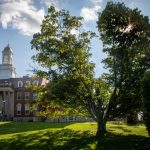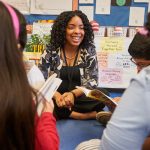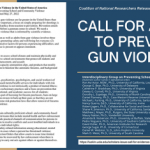Meeting the growing demand for data scientists to tackle the most complex problems in society.

New Multidisciplinary Data Science Master’s Starts this Fall
September 26, 2022
Read stories about recent Neag School news and events including research grant announcements, appointments, and awards.

September 26, 2022
Meeting the growing demand for data scientists to tackle the most complex problems in society.

September 26, 2022
Throughout the academic year, the Neag School is proud to share the latest achievements of its faculty, staff, students, and alumni. Explore their most recent promotions, awards, retirements, publications, and more: Dean’s Office Department of Curriculum and Instruction and Teacher Education Department of Educational Leadership Department of Educational Psychology Faculty/Staff Students Alumni In Memoriam Dean’s […]

August 25, 2022
Since 2017, the number of students of color has more than doubled in the Neag School’s Teacher Certification Program for College Graduates and increased by 33% in the Integrated Bachelor’s/Master’s Teacher Education Program.

June 22, 2022
After a year of careful planning, the Neag School of Education’s Two Summers Educational Technology program and the UConn School of Fine Art’s Digital Media and Design (DMD) program co-hosted the inaugural Frontiers in Playful Learning conference from June 1 – 3, 2022.

June 1, 2022
The recent mass shootings across the country—and there have been 214 mass shootings in the first five months of 2022—are another painful reminder of failed efforts to stop the kind of gun violence that occurred at Sandy Hook Elementary School nearly ten years ago. An interdisciplinary group of scholars who have studied school safety and violence prevention for decades, including Professor Emerita George Sugai of the Neag School of Education, are calling for immediate government action to initiate scientifically-informed actions to reduce gun violence.

June 1, 2022
Britney Jones, Neag School of Education doctoral student in the Department of Educational Leadership, prepared the following rapid research brief with the Center for Education Policy Analysis, Research, and Evaluation (CEPARE).

May 26, 2022
Elizabeth Zagata, Neag School doctoral candidate in the Department of Educational Psychology, prepared the following rapid research brief on superintendent relationships with school boards with the Center for Education Policy Analysis, Research, and Evaluation (CEPARE).

April 7, 2022
A group of graduate students at UConn’s Neag School of Education have launched the School’s first academic journal. The journal is now welcoming submissions through the end of May for its inaugural edition, slated for publication in Fall 2022. Under development for nearly a year, the Neag School of Education Journal is an editor-reviewed, open-access, annual journal.

April 5, 2022
For the first time since Spring 2019, the Neag School of Education community is planning to celebrate Commencement Weekend on campus at UConn Storrs.

March 29, 2022
UConn’s Neag School of Education appears for the seventh consecutive year as one of the top 20 public graduate schools of education in the United States, tied at No. 17, per the 2023 U.S. News & World Report rankings released earlier today.